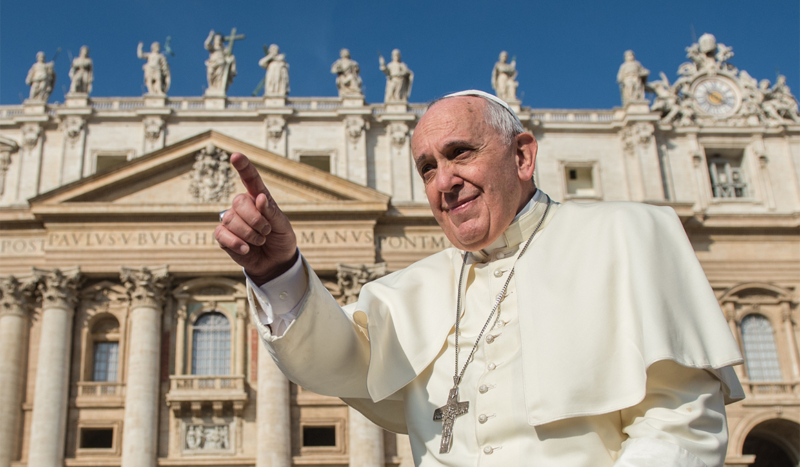
Catholic Church England and Wales / Flickr
CV NEWS FEED // In an essay published Tuesday, First Things editor R.R. Reno argued Pope Francis’ letter to the U.S. bishops on the immigration crisis “eschews nuance” in an effort to promote an ideological project of globalization.
Reno’s essay, titled “Pope Francis’s Apocalyptic Dream,” provides a detailed analysis of the papal letter, in which the Pope voices his opposition to the Trump administration’s enforcement of immigration laws.
As CatholicVote reported, “In an unexpected letter to US bishops dated Feb. 10, Pope Francis expressed concern over the Trump administration’s deportation initiatives and their impact on vulnerable populations and appeared to criticize Vice President JD Vance’s interpretation of ordo amoris.”
The Pope’s message is a “recipe for ecclesial self-destruction,” according to Reno, a “suicide note” in the “form of a letter.”
Reno affirmed the Pope’s statements on human dignity while criticizing his letter for failing to correctly apply them to American politics.
In his letter, the Pope asserted that “the rightly formed conscience cannot fail to make a critical judgment and express its disagreement with any measure that tacitly or explicitly identifies the illegal status of some migrants with criminality.”
Reno contended that the statement amounted to a claim that laws limiting immigration are unjust because breaking them is not a crime.
“According to this logic, short of rapists and murderers (whom Francis allows may be kept out of a country), everyone has a right to migrate,” Reno wrote. “The Holy Father insists that we must not enforce immigration laws. To do so would lead us ‘to give in to narratives that discriminate.’ That’s the same rationale for not enforcing laws against shoplifting.”
Reno claimed the letter was representative of a broader trend in Pope Francis’ thinking, which tends to align with progressive ideals rather than the realities lived by the everyday faithful.
According to the implications of Pope Francis’ letter, the “globalist, open borders position” is presented as the only acceptable view for Christians who genuinely “honor Christ’s universal love.”
Reno highlighted the real-world consequences of mass migration overlooked by the Pope’s vision of “utopian cosmopolitanism.”
According to Reno, “newcomers overload social services, drive up housing costs, and contribute to a feeling of dispossession among the native-born.” Meanwhile, wealthy elites remain unaffected, living in what Reno called a “white-topia,” insulated from the societal strain that migration places upon the poor.
Beyond the immediate immigration debate, Reno argued Pope Francis holds an “apocalyptic dream for the West,” envisioning its foundations being overturned by mass migration and environmental peril.
Pope Francis is “someone who welcomes catastrophe rather than appealing to Catholic social doctrine to make nuanced judgments that might help us humanize,” Reno argued, “the policies and actions necessary to prevent the social upheaval that attends rapid demographic change, and the disorder it will bring.”
Reno wrote that Pope Francis’ stance on immigration requires Americans to reject patriotism, love of country, and care for fellow citizens. “I don’t envy America’s bishops,” Reno concluded. “It’s a hard task to require the faithful to attend Mass so that they can be told that loving one’s country and its citizens is a wicked sin. That’s a recipe for ecclesiastical suicide.”

